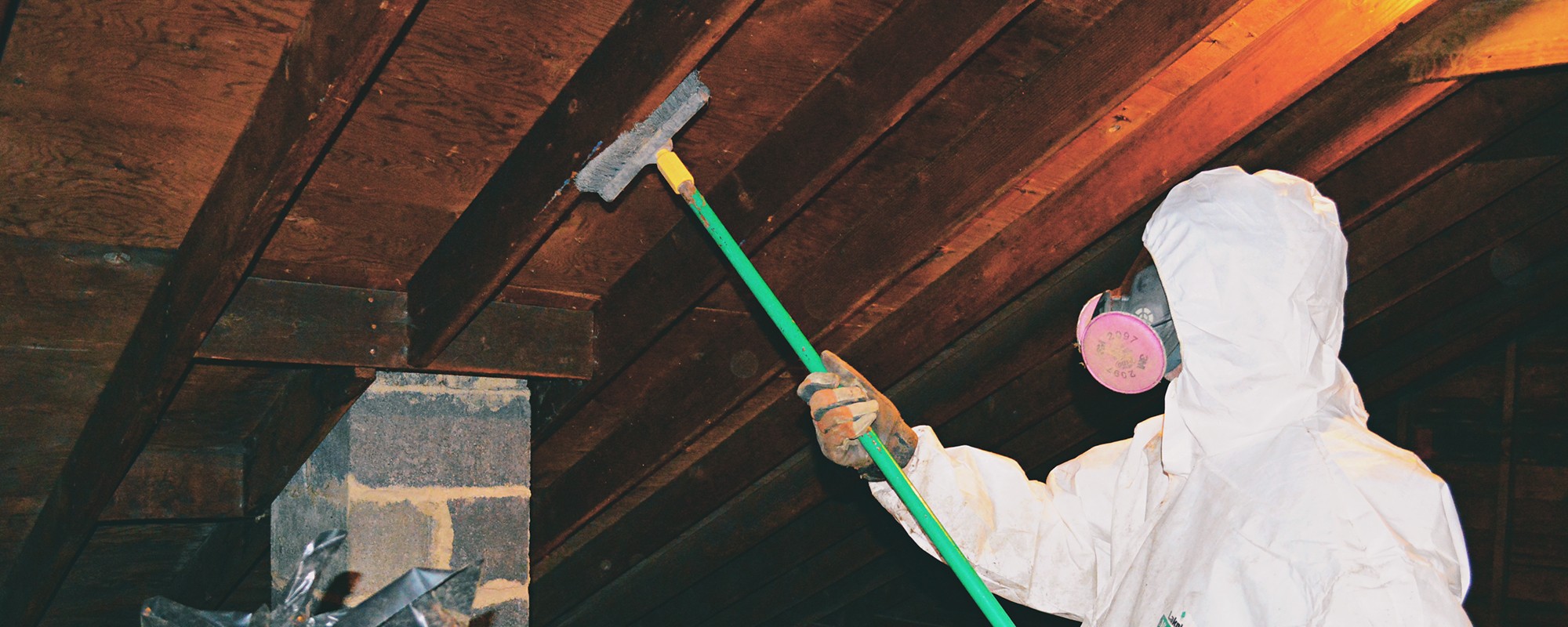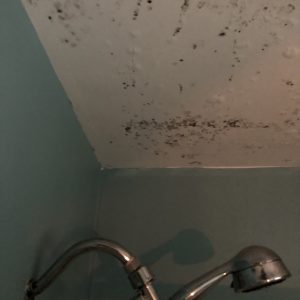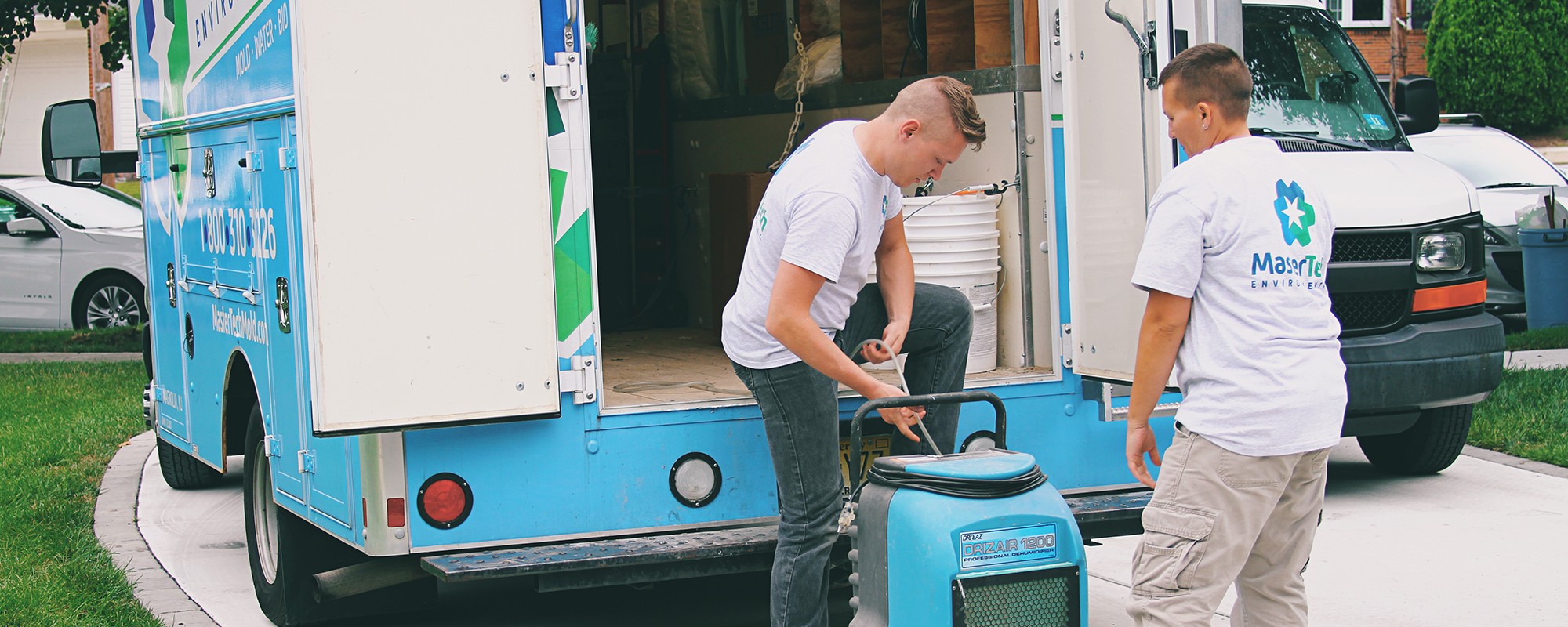
At the first site of possible mold growth, most homeowners’ first reaction is to reach for that bottle of bleach. Truth is, you should NEVER use bleach on mold. Bleach is NOT an effective solution for mold. Misinformed individuals continue to perpetuate this myth. Not only is bleach not an effective solution for a mold problem, bleach can have a negative effect. When you bleach mold, you might make the existing mold problem worse.
Both OSHA and The EPA’s stance on bleach for mold have changed. Currently, the EPA advises against using bleach on mold.
Why Bleach is NOT An Effective Solution for Mold
Well, to be clear, bleach is not 100% ineffective against mold. Bleach can possibly be effective against very minor areas of mold growth on hard, NON-POROUS surfaces. “minor,” “non-porous” and “surface” are very key words here. Bleach is NOT an effective solution for mold largely because bleach was not created to “soak in” and clean within the pore of soft, porous materials. Bleach is meant to address surface issues. Its disinfecting properties are limited to a hard surface like tile or glass. In the right situation, with the right conditions, bleach application might be a viable option– i.e.: very minor areas of mold growth on hard, non-porous surfaces.
The serious problem with this misconception around mold and bleach is when it comes to softer, porous building materials. To ensure survival, mold spores spread its roots deep into a porous surface. Professional mold remediation process includes steps to address these roots. This requires a cleaner to reach deep down into wood and other porous building materials to actively remove or “pull out” the roots. The properties of bleach prevent it from soaking into porous building materials. After an application of bleach, it may seem like the mold problem is gone. It’s not. Mold roots are still lurking deep within the pores of your building materials, just waiting to resurface.
Mold roots left within porous materials may not be visible, but they are very much so a problem that needs to be actively removed in order to ensure clean and safe conditions.
Mold spores that settle on hard, non-porous surfaces can’t root beyond the surface. That is why minor a mold contamination on a hard, non-porous surface can be a simple fix. However, when dealing with mold and porous building materials, like drywall, wood and most other common building materials, the cleanup process is much more involved. DO NOT just bleach your porous surfaces and assume that you have gotten rid of your mold problem. Mold roots left behind within your porous building materials may not be visible, but they are very much so a problem that needs proper attention.
How can Bleach Make My Mold Problem Worse?
Bleach is NOT an effective solution for mold, BUT even worse… bleach can actually contribute to mold growth and make your existing problem even WORSE. You see, bleach contains a lot of water and mold loves water. When you apply bleach to porous building materials the water in the bleach is absorbed by the material and will feed the mold rooted within the materials. When moisture from the bleach is introduced to the remaining spores within the pores of the building materials, the mold will root deeper, stronger and will often return with a vengeance. In time, it will reappear and become visible at the surface.
After a bleach “treatment” homeowners often report that it looks worse than before. In the end, using bleach only leaves you in a perpetual cycle of application and regrowth. Like Sisyphus, you will be bound to your own moldy hell.
Furthermore, bleach rapidly loses it’s effectiveness, meaning it becomes less and less powerful with time. Bleach is 50% less effective in 90 days even if its container is not opened. Since you are not onsite at the time of packaging, it may be difficult to ascertain the true potency of your bleach. It may have been sitting at the store, or in your home for some time, diminishing the ability to perform.
Since it is hard to be certain how old your bleach may be, your bleach may not even be effective on non-porous surfaces. Even worse, you just introduced all that moisture to the environment that can feed your mold and just make things worse.
Other Problems When You Attempt Mold Cleanup With Bleach
If we haven’t convinced you that bleach is bad news bears when used against mold, here are some other noteworthy downfalls with using bleach to “treat” mold:
Caustic– Meaning, it creates a chemical reaction that can burn or corrode organic tissue.
- When you apply bleach to mold, you can seriously damage any surrounding wood and other surfaces. Bleach can breakdown the organic fibers and compromise structural integrity.
- Bleach is highly corrosive to skin. Exposure to bare skin creates a chemical reaction that burns your skin.
Toxic– Bleach itself produces fumes that can become harmful to humans and pets. Bleach also doesn’t play well with others. If you are not careful, when bleach is mixed with certain compounds (like ammonia), you can end up with a deadly gas.
Better Options– Yes, bleach can be effective in very specific cases of mold growth on hard, non-permeable surfaces. However, even in those cases, bleach is not the best solution available. The safest and most effective solution against mold is professional mold remediation. But, if you insist on tackling a minor cleanup on your own, there are so many better products available.
There is a wide range of antimicrobial agents that are registered with the EPA specifically for mold and have a true residual effect. Do your research! Some products are even formulated to be friendly to the environment, your family and your pets.
Professional Mold Remediation Services in South Jersey
If you are facing a mold problem in your New Jersey home or business, the only effective solution is active removal. Please, put down the bleach. Do not attempt to use bleach to clean mold. It is not an effective solution for mold. Mold needs to be effectively removed in order to prevent it’s regrowth and protect your property from additional damage.
If your mold problem is small and confined to a single area (less than 10 square feet), clean up might be manageable on your own. BUT be sure to do your research and properly prepare for the cleanup. Property owners often underestimate how involved mold cleanup can be. Sometimes DIY mold removal ends up being a bigger headache than it is worth and can actually make things worse and more expensive if not done properly the first time. If, at any point, your DIY cleanup becomes too challenging or if you realize you have a bigger problem on your hands than you initially anticipated, call for professional help.
Professional trained mold removal technicians will have the necessary tools, training and knowledge to safely and effectively remove the mold and get to the bottom of the moisture source. For more information regarding the professional mold removal process, call 609-948-8844 to speak with a mold specialist today.



